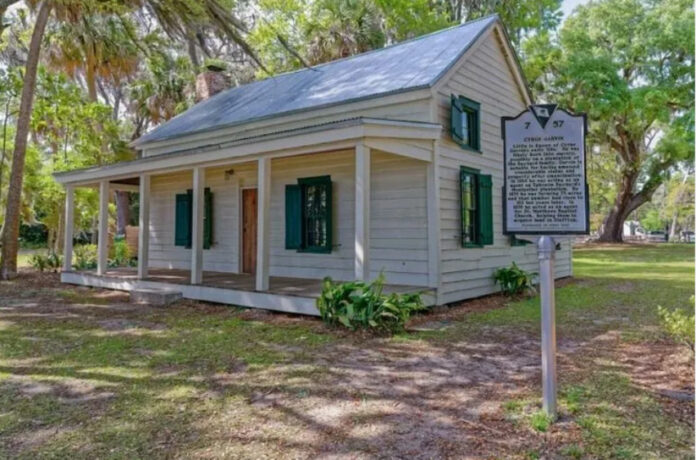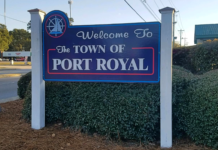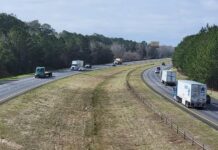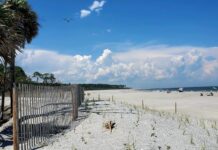The National Park Service announces the addition of eight new sites to the Reconstruction Era National Historic Network, including two in Bluffton SC. This national network connects sites across the country who provide education, interpretation and research related to the period of Reconstruction. The Reconstruction Era (1861-1900) is one of the most fascinating and misunderstood periods in American History and includes stories of freedom, education and self-determination.
These newest additions to the Reconstruction Era National Historic Network include:
- The Plessy v Ferguson Imitative, based in New Orleans, Louisiana, works with neighborhoods and community organizations to preserve and interpret the story of the Reconstruction Era, Homer Plessy and the Citizens’ Committee, and Plessy v Ferguson ‘separate but equal’ decision’s continued impact on the community.
- The Historic Hezikiah Haskell House was built by Peter Tucker, a formerly enslaved man, and his wife Betty, in about 1875. It is located in the community of Clarksville, Texas, one of the first Freedom Colonies established west of the Mississippi in Texas after the Civil War, and the house also served as the community’s first church
- River View Farm in Charlottesville, Virginia is an African American historic site that seeks to preserve the home, barn, and farm of the Carr, Hawkins, and Greer families. Originally established by Hugh Carr, a formerly enslaved man, in the 1870s, the farm remained operated by his descendants for a century. The site offers educational programs that examine the history of African American land ownership, farming, and the legacy of Black education during Reconstruction.
- The Garvin-Garvey House was constructed around 1870 by Cyrus Garvin (Garvey) in Bluffton, South Carolina. It is believed to be the oldest extant dwelling built by a freedman in Bluffton and remained in the possession of the Garvin family until the 1960s. In 2004, the Town of Bluffton entered a partnership with Beaufort County to maintain Oyster Factory Park, which includes the Garvin-Garvey House.
- Historic Campbell Chapel AME was originally built by enslaved people in Bluffton, South Carolina in 1853. In 1874, the chapel became part of the AME Church and served the community throughout the Reconstruction Era as a social, religious, and academic center of the community.
- The Peabody Academy Museum and Cultural Heritage Site was founded in Troy, North Carolina in 1880 by the American Missionary Association for the education of freedmen. Today, the museum houses the Peabody Legacy Project and the archives and promotes Reconstruction era interpretation and preservation in the community.
- Fort Frederica National Monument on Saint Simons Island, Georgia, was home to a thriving Black community during Reconstruction, including the family of journalist and religious leader Robert S. Abbott. Recent archeological work by park staff has identified the location of Freedman cemetery, and the park includes a monument erected by Abbott in memory of his family who lived and died at the site during Reconstruction.
- The Coalition to Save Historic Thoroughfare was established in 2021 to preserve and interpret the location the community of formerly enslaved people and Native Americans who settled in Historic Thoroughfare, Virginia during Reconstruction.
The John D. Dingell, Jr. Conservation, Management, and Recreation Act, signed into law on March 12, 2019, outlined the creation of the Reconstruction Era National Historic Network. This network, managed by Reconstruction Era National Historical Park, includes sites and programs that are affiliated with the Reconstruction Era, but not necessarily managed by the National Park Service. This network is nationwide and works to provide opportunities for visitors to connect to the stories of Reconstruction.










